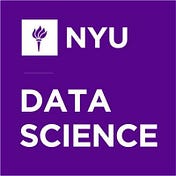NYU Center for Data Science

NYU Center for Data Science
Official account of the Center for Data Science at NYU, home of the Undergraduate, Master’s, and Ph.D. programs in Data Science.

Official account of the Center for Data Science at NYU, home of the Undergraduate, Master’s, and Ph.D. programs in Data Science.